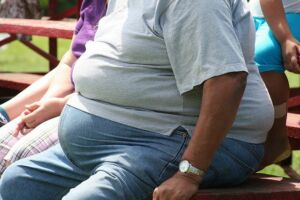News
Europe should classify obesity as a disease, say researchers
This article is more than 10 years old.
Recognition would require the state to treat obesity as an illness

Disease or excess? (photo: Tony Alter)
Obesity is a disease. Those are the findings of Danish doctor Jens-Christian Holm on behalf of the European Childhood Obesity Task Force and reported in scientific journals last month.
“We believe that the time has come for Europe to declare obesity as a disease,” Holm told Politiken.
Not responsible
Holm – the chief research officer at Enhed for Overvægtige Børn, the centre for overweight children at Holbaek Hospital – said obesity is controlled by a hormone system struggling to maintain weight.
“When fat mass reaches a certain extent, it interferes in all of the physiological functions of the body, with the consequent diseases, disorders and psychological consequences,” said Holm. “We must not bury our heads in the sand and say that it is the people’s own fault.”
The Canadian Medical Association (CMA) has already declared obesity a disease. In 2013, the American Medical Association (AMA) also said that obesity is a chronic disease.
State would pick up the tab
However, some researchers are reluctant to define obesity as a disease, as it would create a situation where many overweight people would be regarded as sick and thus entitled to treatment by the state.
READ MORE: Majority of Danes believe obesity not a disease
Health authority Sundhedsstyrelsen is not currently considering changing the definition of obesity, saying that it is a risk factor for developing other diseases but not a disease itself.










































